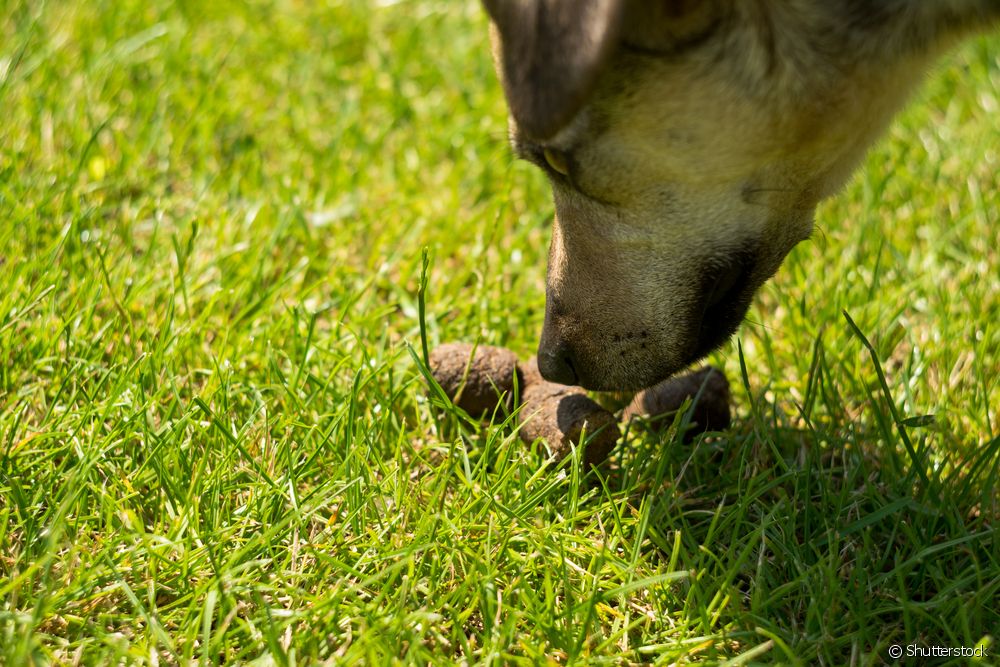Why does a dog eat cat feces?

Table of contents
Canine coprophagia happens when dogs have the habit of ingesting feces, whether their own or when the dog eats cat feces, for example. Although it seems strange and even a little disgusting, this type of behavior turns out to be much more common than we imagine and arouses numerous doubts in those who have a puppy. After all, is the dog eating cat feces bad?What are the reasons why dogs ingest cat poop? What can be done to prevent it? Here are the answers to all these questions!
Dog eating cat poop: why does it happen?
Have you ever wondered why dogs eat cat faeces? There are several explanations for this! To begin with, cat poo is considered tasty by the canine palate, as it contains a higher amount of protein in its composition. In other words, dogs often eat cat faeces simply because they find it tasty.
There are also other reasons behind this behavior, such as nutritional deficiencies, a bored dog, a need for attention, stress, anxiety, instinct or even curiosity. Dogs like to explore what they don't know, and they may be instigated by feces.
Is eating cat feces bad for dogs?
If your dog often eats cat feces, know that this is not ideal. Even though it is a typical behavior of dogs, and not always related to stress, anxiety or nutritional deficits, the ingestion of feces is quite problematic for several reasons. The first of them is that cat poop is far from being a good source of nutrients for the pet. Quite the contrary, the cat's poop is not a good source of nutrients.feces have a high chance of containing harmful bacteria and parasites that can harm the canine organism and even cause disease.
Gastrointestinal disorders are very common in these cases, which leave the dog with diarrhea, vomiting and abdominal discomfort. In addition, another condition that needs close attention is toxoplasmosis in dogs, transmitted mainly by ingesting contaminated cat feces.
 Dog eating cat poop is unhealthy and should be avoided
Dog eating cat poop is unhealthy and should be avoided
Learn how to avoid a dog that eats cat feces
When we catch a dog eating cat feces, one of the biggest questions that crosses our minds is how to stop this behavior. Fortunately, there are some tips that can help in these moments, such as:
1) Clean the cat's litter box daily. This regular cleaning will prevent the dog from being stimulated to eat feces, since the box will always be clean.
2) Use positive training. Teach your dog basic obedience commands, such as not to eat anything off the floor. Whenever your dog approaches the crate, use this command and reward your dog when he moves away from the accessory.
3) Invest in environmental enrichment for dogs. This is the best way to avoid boredom, stress or anxiety in pets. A dog that has mental and physical stimulation will often not want to eat cat poop to pass the time.
See_also: Do cat socks affect the animal's instincts or are they recommended in some cases?4) Provide quality feed for the animal. By choosing a good dog food, you avoid nutritional deficits that can leave your dog eating cat feces.
5) Make cat poop unpleasant for the dog. There are some products that can be applied directly to feline feces that have a smell and taste that dogs do not like, such as pepper.

